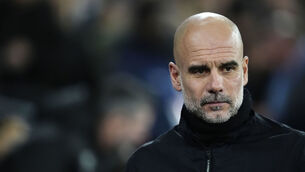Losing like champs is only half the battle
The Galway hurlers, for instance, don’t seem to know how to lose, as strange as that might read.
Three of their last four championship defeats have been pitiful, epitomised by one of their veterans following through to clip a young Waterford sub whose goal deservedly extended the winners’ margin of victory to double digits in Thurles last Sunday week.











